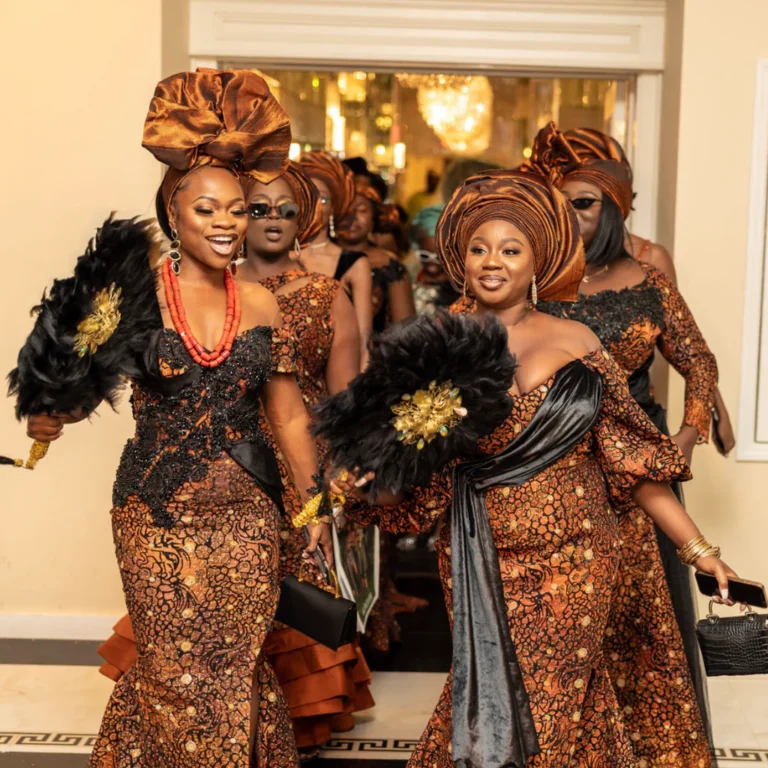The Aso-ebi culture in Nigeria has evolved beyond family bonds to become a booming trend, especially for special occasions like weddings, birthdays, and even memorials. Aso-ebi, meaning “family cloth,” serves as a visual show of support for a celebrant. But as this custom grows, so do the prices, with some celebrants using it as an opportunity to make a profit, leaving buyers with sky-high costs—sometimes running into six figures.
Imagine this scenario: after a long day at work, a colleague walks up to your desk, leaves a lace fabric with a note that says “Aso-ebi: 70,000 naira, bank details attached, thanks in advance.” The cost hits you like a shockwave. You think, “Is this fabric worth spending such an amount on?” For someone who isn’t a close friend or family member, that price might seem extreme.
Deciding that it wasn’t worth the cost, you return the fabric. In response, your colleague mentions how another co-worker even dipped into her master’s degree savings just to afford it. It’s surprising, but the truth is many people go to great lengths to buy Aso-ebi for friends’ events, often without thinking of the strain it places on their finances.

If you’re questioning whether your own Aso-ebi habit has gone too far, here are some signs to look out for:
1. Borrowing Money for Aso-ebi
If you’re taking out loans just to buy Aso-ebi, it’s time to reconsider. Politely explain to the celebrant and wear something you already own for the event.
2. Using Your Savings
Savings are meant for personal goals, not a fabric you’ll wear for a few hours. Think twice before dipping into your hard-earned savings for this.
3. Buying on Credit
Some people buy Aso-ebi, wear it, and then pay it off when their next paycheck arrives. This can quickly spiral into unnecessary debt.
4. Selling Your Belongings
Some go as far as selling gadgets or even previous Aso-ebi pieces to buy new ones. While it might seem practical, it’s a sign that Aso-ebi spending is taking a toll.
5. The “One Good Turn Deserves Another” Mindset
If you push friends to buy Aso-ebi, it’s natural they’ll expect you to do the same for them. But buying in anticipation of future reciprocation only fuels unnecessary spending.
So, what’s your take on the Aso-ebi culture? Are these expenses truly meaningful or have they become overblown? Let’s discuss in the comments—share your thoughts!


